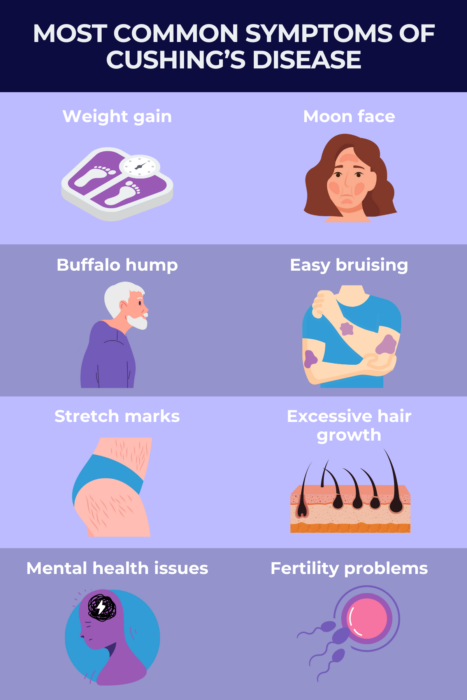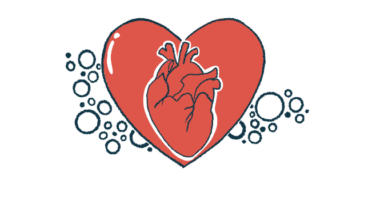FAQs about Cushing’s disease symptoms
Cushing’s disease can cause a wide array of symptoms, including weight gain and changes in body fat distribution; skin issues such as acne, stretch marks, and easy bruising; changes in body hair; emotional and mental health issues like anxiety and depression; problems with fertility and low sex drive; and other health complications, including high blood pressure and bone loss. These symptoms vary from patient to patient, and not everyone with the disorder will experience all of its possible symptoms.
Most symptoms of Cushing’s disease, including weight gain, skin changes, emotional changes, and issues with fertility and sex drive, can affect both men and women. However, reproductive health issues associated with Cushing’s have distinct symptoms depending on a person’s sex. In women, these can manifest in the form of menstrual irregularities, while in men, it can present in the form of erectile dysfunction and low sperm count.
Children with Cushing’s disease can experience most of the same symptoms as adults with the disorder, including changes in skin, body hair, and body fat distribution, as well as weight gain and emotional problems. In children, the disorder often leads to stunted growth.
Weight gain is a common symptom of Cushing’s disease. People with Cushing’s often experience a buildup of fat in certain parts of the body, particularly around the abdomen, in the face, and in the back of the neck.
Related Articles

 Fact-checked by
Fact-checked by 







